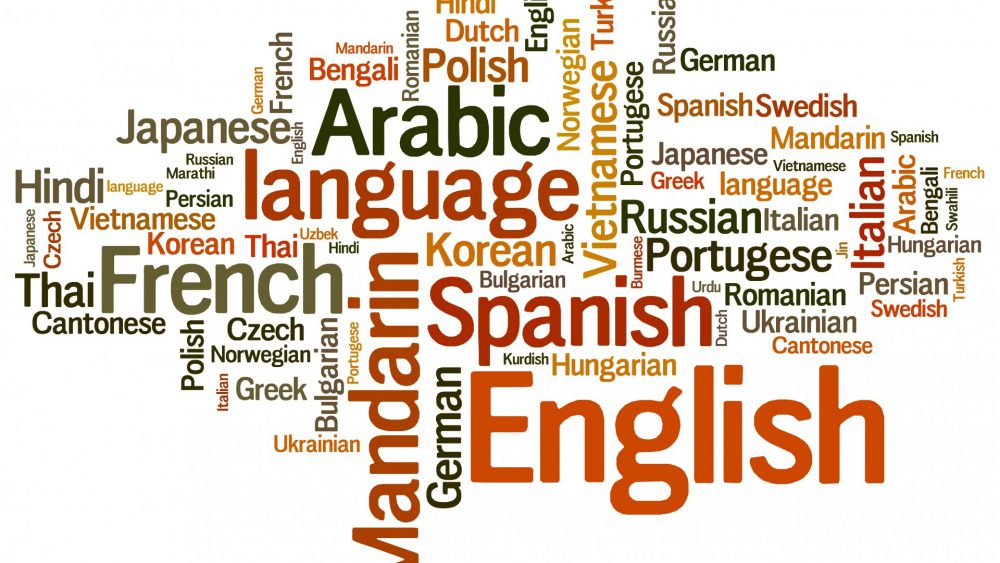The world speaks English. English will be, in the vast majority of cases, your passport to opportunities far away from Italy. What about other languages? Should they all be forgotten or relegated to the role of supporting actors? No. There are multinationals that are not tied to English tightly, even though at this point it’s the universal language of the working world. Being fluent in one or more foreign languages—and fluent we don’t mean being capable of ordering a sandwich on vacation—is the starting point for deciding where to focus your efforts as well as one of the principle tools for identifying potentially interesting companies or regions.
Don’t even think about listing a foreign language proficiency on your resume if it’s not really the case (confess: you’ve done it, haven’t you?). Other than being a pervasive vice among many Italians, embellishing, or better yet misleading, is also one of the first things that will exclude you from a list of potential candidates.
It’s better to be honest and focus on your skills rather than writing a half-truth and hoping that your hiring manager is an idiot.
The fact is that there’s nothing you can do to convince your employer to wait while you learn a language. You either have an adequate understanding of the language to be hired, or you can try again in the future when you are proficient if the job is still available.
There are very few cases where the demand for work is so high that employers are willing to create training programs that include foreign language skills. So, don’t bet on it.
What should you do if you realize that you can’t speak or understand a language that you thought you knew, or if you really don’t know any at all? How should you choose which language to study? There is no single right answer, but to decide which language to study and how to learn it, you need some basic information.
Which languages are spoken in the world?
A search on Ethnologue20 returns the following results for the native languages spoken by at least 50 million people:
Native language (millions)
- Chinese 1,197
- Spanish 414
- English 335
- Hindi 260
- Arabic 237
- Portuguese 203
- Bengali 193
- Russian 167
- Japanese 122
- Javanese 83
Italian is 12st with 63.7.
Keep these numbers in mind when you’re reasoning in terms of a globalized world and languages to know. The interpolation of these data with economic opportunities that each respective region is capable of offering is fundamental; it breathes life into the difficulty of finding jobs abroad knowing only Italian. But which are the most spoken languages in total? Using the same data from Ethnologue, we now have a better picture of the effective utility of learning one language compared to another:
- English 101
- Arabic 60
- French 51
- Chinese 33
- Spanish 31
- Farsi 29
- German 18
- Russian 16
- Malaysian
- Portuguese 12
- Italian 11
Therefore, it’s clear that fluency in at least one foreign language is indispensable for cultivating a chance of finding work overseas. And the language that offers the most opportunities in absolute terms is English, because it is spoken by many people and accepted in the majority of countries.
Other variables
There are other factors to consider when choosing a language to study:
- The size of the company: the bigger it is, the more English will be spoken; the smaller it is, the more the local language will be important.
- Sector: In IT, for example, English is spoken, like it is in Gaming. In the healthcare sector, the local language is usually spoken, but if it’s an international establishment, they’ll use English. In Oil & Gas, French is very relevant in addition to English.
- Destination country: in many area of the world, you have to know the local language perfectly in order to move and find a job, like in Russia or Japan. In other countries, it’s not always necessary but it’s certainly a plus, like in Germany and France.
Remember
- If you want to work abroad, you need to know at least one other foreign language.
- To get a job in a smaller company you need to know the local language.
- You will rarely work for Italians overseas.
Did you know?
Italian restaurants overseas rarely use Italian waiters. Let’s dismantle the myth of the Italian waiter abroad!




















Lascia un commento